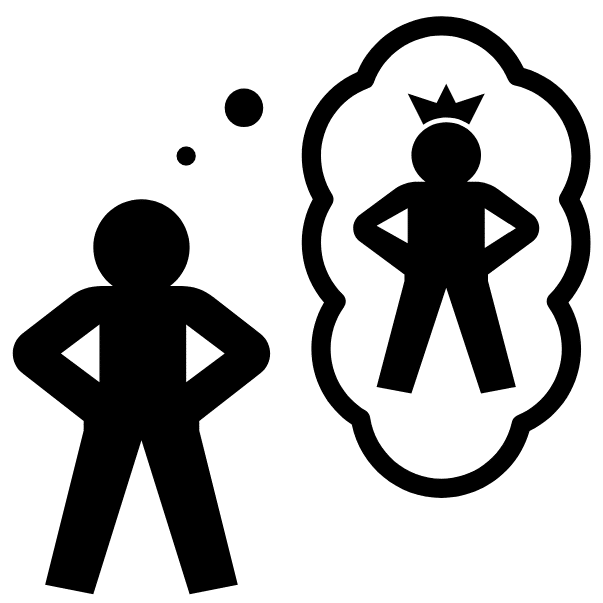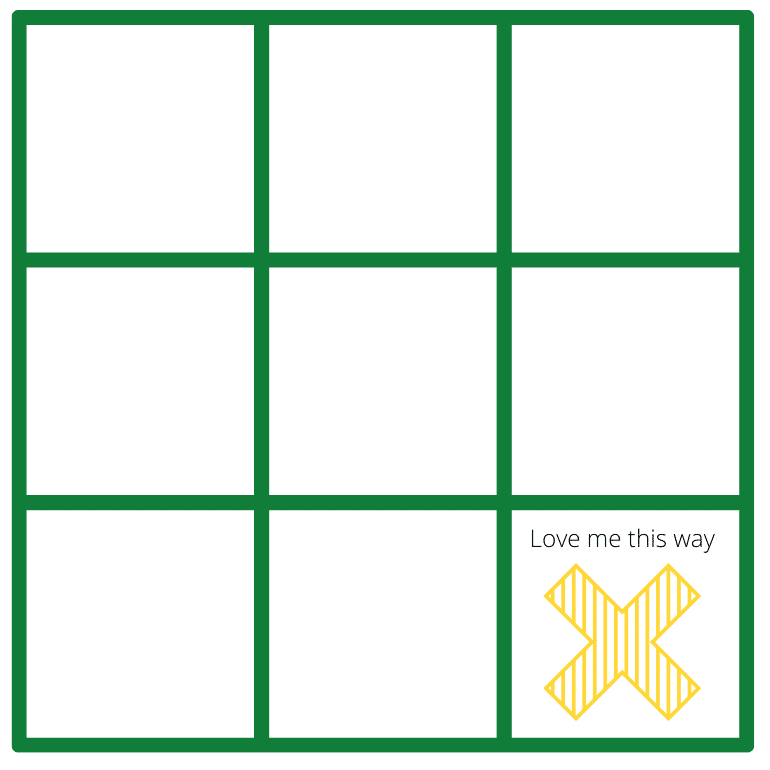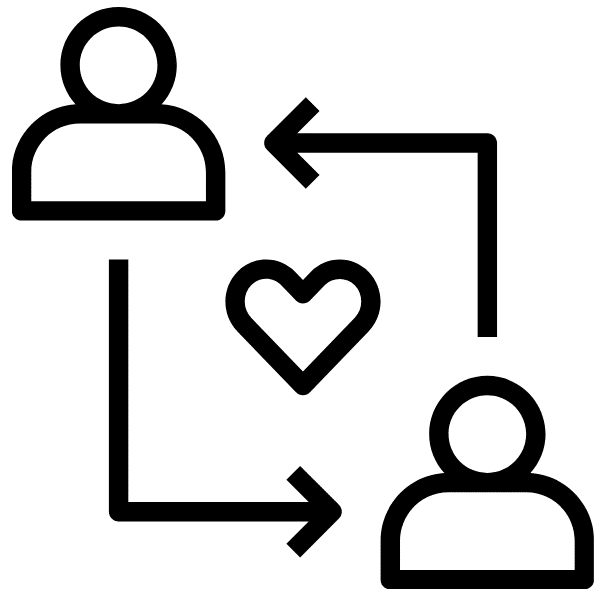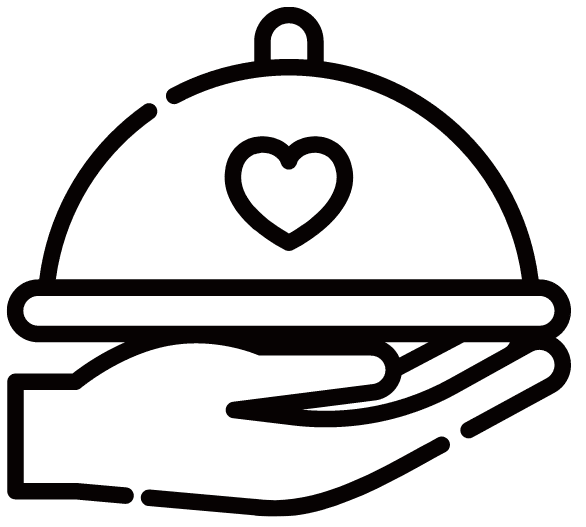My Backstory
I was married for twelve years. In those twelve years, I developed some helpful habits – habits that helped my marriage and helped me. In those twelve years, I developed some hurtful habits – habits that hurt my partner and hurt me. While those habits were not what ultimately caused my divorce, they were the habits that I’ve since learned contributed immensely to my unhappy marriage. The thing is, I was completely unaware that I developed habits that were so hurtful to my then-husband and myself. In fact, I thought these habits were helping build my relationship. I was wrong.
I have been divorced for two years. In these two years, I’ve developed some helpful habits – habits that have lifted me from the cold ground I found myself upon while my world imploded through my divorce. In these two years, I have recognized many areas of my life that needed my attention and focus. In these two years, I have forged myself into an entirely new woman while seeking my new truths, engaging in soul digging reflection, and fighting for change in myself. In these two years, I have discovered and felt love in a way I couldn’t even have imagined existed. In these two years, I have learned more about my responsibility to myself and what it truly means to make myself whole.
My First Experiences With Love Languages
When I was a young newlywed, I distinctly remember my mom recounting information about this book she was reading. In the book, five “Love Languages” were identified. If you’ve ever been in a relationship, or you’re in one now, you’ve most likely heard of this concept. If you’re not familiar with love languages, here’s a really basic explanation.
Essentially, five areas of ways to show and receive love are identified. The theory teaches that we can order the love languages in a way that suggests the best ways for someone else to show us love. Our highest “love languages” are the ways we receive love in the best form; therefore, we feel the most loved when we’re experiencing our “love language.”
The Five Love Languages
- Word’s of Affirmation
- Acts of Service
- Receiving Gifts
- Quality Time
- Physical Touch

The book, and then eventually the method of loving using the Love Language Theory, became a staple in my marriage theories and practice. It felt so easy because I could easily identify, label, and ultimately share with him how I wanted and needed to be loved.
Practicing Love Languages in My Marriage
Early in my marriage, before the kids came, I felt like my highest ranked love language was receiving gifts. “Perfect!” I thought to myself. “I’ll tell him that this is how he can show me love, and it will be so simple. And he’ll tell me how he wants to be loved, and I’ll show him that way.”
But it wasn’t that simple. The gifts didn’t come regularly. I often wondered why it was so difficult for him to do something so manageable to show me his love like bringing home some flowers or grabbing a small gift at the store. He often wondered why his love language he conveyed to me, physical touch, wasn’t how I wanted to show him love either.
When My Love Language Left Me Feeling Unloved
About two weeks after welcoming our first child together, a child that took over two years to conceive, Mother’s Day arrived. I was excited! Mother’s Day during the two agonizing years of infertility was so painful. But not this year! This year, I was finally a mom. This was a day that I just KNEW I would get to feel loved. It was going to be a day all about recognizing me in my new role. There would be a card and a thoughtful gift. I had it all planned in my head. He was going to tell me what an amazing mom I was to our newborn. He was going to recognize the sacrifices I made. He knew my love language, so surely he would deliver. I was going to be so uplifted.
But I wasn’t.

There was nothing. Not a card. Not a gift. I was devastated. I felt unloved because I had placed the definition of my love in that love language. I still didn’t understand why it was so difficult for him to love me when I felt like I practically gave him a “How To” guide.
The years went on. We had two more children. My highest ranking love language changed. Being a busy mom with three young children and a business to run contributed to that change! I identified my highest ranking love language at that point as acts of service. I needed help around the house, and when I received it, I felt loved.
But I didn’t receive it as often as I felt I needed it. And when I didn’t receive it often, I felt unseen and devoid of what I was seeking from him. Did he not see how overwhelmed I was? Surely, if he loved me, he would show me by serving me. I felt like I was doing everything all alone, and because he knew what my love language was, I felt even more ignored and neglected.
We talked quite often in our marriage about our love languages. It was always a way for us to measure how good of a spouse we were. The common agreement between both of us was that we tried to show love; however, we often tried to show love in the way we wanted to be loved ourselves. I bought him gifts and tried to serve him in small ways. He tried to show me love through physical touch. Neither of us felt loved. We both just felt unheard.
Eventually, love languages became “proof” of our failing marriage. We accused each other often of neglecting the easiest way to show love to one another. I accepted that anything I wanted to be accomplished in our home, I would need to do on my own. I bought myself everything I wanted. When he stepped outside our marriage to experience his love language from someone else, I blamed myself in some way. Maybe I had pushed him there because I didn’t show him love the way he wanted it shown. Maybe if I had, he wouldn’t have sought love elsewhere. Maybe…
Discovering How I Really Need to be Loved
I thought that the hardest decision I’d ever have to make in my life was when I decided to walk away from my marriage. In reality, the hardest decision was the one I had to make every morning I woke up after walking away from my marriage for those first six months. Divorce threw me down a hole – one that kept going with no sign of a “rock bottom.” It was SO HARD for quite a few months. The term “survival mode” gained a whole new meaning to me during that time. At times, I truly felt like I was fighting for my life. I was suffering from betrayal trauma and PTSD while simultaneously feeling the pressure of being a newly single mom to three young children.
About a year after my divorce was final, I found some of the hope I was seeking. I was at a point where I felt my life was starting to stabilize. I felt safe enough emotionally to start doing deeper work on myself. It was no longer “survival mode.” It was time to start thriving. The hope I found came in the form of a three-day therapy intensive for women who had been betrayed in relationships. The intensive was life-changing. I felt enlightened and empowered in an invigorating way. I learned many valuable lessons – one of which centered around love languages.
One of the topics we covered at this intensive was how to love ourselves and what loving someone else could really look like. I wrote this in my notes.
“My capacity to loving myself is directly connected to how I give love.”
The whole idea is really quite beautiful. When we love ourselves so much and so well, we don’t NEED love from anyone else. We fulfill our needs for love on our own. Our love for ourselves is not dependent on someone else’s opinion or feelings for us. We can learn to love ourselves so much and so well that any love that we receive from anyone else is ABUNDANCE to the love we already feel on our very own. When I honor myself and hold myself in a place of sacredness, I can love from a place of abundance instead of a place from neediness. I can love while expecting absolutely nothing in return.

It all clicked for me when I began to understand this concept. I did this all wrong in my marriage. Instead of allowing my then-husband to love me the way he wanted me to, I was trying to force him into loving me the way I wanted him to. And I did it because I wasn’t fulfilling my own needs of love. I was looking for him to fulfill them for me.
My teacher said something that will always stick with me. She said about loving others:
“Don’t make me love you in a box.”

That’s exactly what I was doing my whole marriage. I was telling him that he could only love me in a predetermined way. I was telling him the way he showed me love wasn’t good enough because he wasn’t showing it to me using my “love language.” I was telling him that he was wrong to show me love the ways he did, and in doing so, I was filling his bucket with negativity. At the same time, I was filling my own with affirmations of being unlovable. It was a vicious cycle that went both ways. By the end, I had convinced myself that I was unworthy of love of any kind.
The acts of showing my love to someone else is a gift to me. It’s a gift to myself to experience how I feel when I show love in ways that I choose. The way it makes me feel to give my abundance of love to someone else, expecting absolutely nothing in return, is liberating. Not needing someone to show me love in a certain way means that I’m free to be loved in ANY LANGUAGE.
My teacher used an analogy to describe what it means to need love. Imagine sending a text to your partner. You decide that you are going to put a great effort into choosing the perfect words to express your love. You spend time crafting a love note that goes into great detail about whatever is on your mind. You can’t wait to read what your partner sends back. You send the text and wait for a response, and you get it. It’s a “thumbs up.” You’re devastated because you wanted your partner to respond in a similar way to your message. You wanted the love note. You question their love for you. You wonder why they didn’t acknowledge your effort. You’re hurt.
Why did you send that text? What need were you trying to fill? Why do you need your partner to fill it? What were you really asking from your partner? Was your real intention in sharing your text to get one in return because you need it? Is sharing your words and your heart not filling your bucket enough?
Think of writing that same text from a place of vulnerability and abundance. Vulnerability is a gift to yourself that allows you to express your emotions and feelings freely, and you can share those feelings when you have an abundance of love to share. When you send that same text coming from this place, you’re doing so with absolutely no expectation of anything in return. You’re doing it to experience your gift of LOVE to your partner. That can be so fulfilling!

How I Apply This In My Life Today
I am happy to report that I have found and experienced love in a whole new way. Interestingly enough, I met my now partner, Josh, just days before my intensive. The timing couldn’t have been more perfect for me to be able to put my new-found theories into practice.

When we met, we were both in a place where we wanted to make changes in our lives. We didn’t want marriages similar to what we experienced before. We wanted better, more meaningful, and deeper connections. We both committed early on in our relationship to make those changes alongside each other, but not for each other.
We have chosen to hold ourselves sacred as individuals first and then as partners next. We have strived to not ask of each other, but instead to support and encourage one another when we have that abundance to give.
We are NOT perfect at this, especially me! I still battle feeling worthy of being loved at times, but I appreciate that Josh doesn’t just step in and try and fix me. He allows me time and space to circle back to what I have learned and sometimes forget – I am worthy of love regardless of anyone else’s actions towards me.
Sometimes, we don’t have any extra love to spare. Going through divorces and figuring out co-parenting takes a lot of intense and exhausting effort at times. We’ve chosen to honor that part of our journey – the part that depletes all of our extra reserves when times are tough. When that happens, we don’t force love when we have none to give. We hold space for each other during these times. We have enough love in ourselves to understand our worthiness of being loved regardless of how much abundance our partner has to share. We have faith in each other to know that when there is no abundance to be had; we can walk alone for a time.
We have talked about love languages. We both decided to throw them out the window – in the traditional sense anyway. We’ve approached how we show our love to one another differently. While we completely recognize that each of the love languages is a great way to show love to one another, we have chosen to reject the idea that we need to show each other love down a list.
What does this look like? Whatever we want it to. If I feel like buying him a new hat, I do. If he wants to fold my laundry for me, he does. If I want to scratch his back, I do. If I want time with him, I plan a date. When I recently started a new job, he complimented me over and over and over. What it doesn’t look like? Labeling efforts as “wrong.” There is no wrong way to express our love.

What does this all mean? That’s the best part. Every time he shows me love, I acknowledge the effort over all else. He’s CHOOSING to share his abundance with me, and whatever way he chooses to do so is a bonus. I try my hardest to have no expectations of how he shows he loves me. By not defining how he “should” love me, I am allowing him to exercise his gift of loving me. I mean, how GOOD does it feel when we show someone love?! How amazing does it feel when we come up with something to do for our partner and execute it perfectly?! How discouraged would we be if our partner rejects our efforts because it’s the “wrong” effort?!
I am so grateful for the lessons I learned. I’m grateful that I can acknowledge the hard truth that I did some things wrong in mty marriage because now I can make necessary changes. I’m so happy that I get to experience loving someone who allows me to love him in any way I choose. My love bucket is OVERFLOWING in abundance most of the time now. In doing the hard work of learning to love me and not need love in return, I have liberated my soul of expectation and allowed myself to recognize love in so many more forms. This is one of the greatest rewards I have learned to recognize on this exhausting and beautiful journey of growth.



